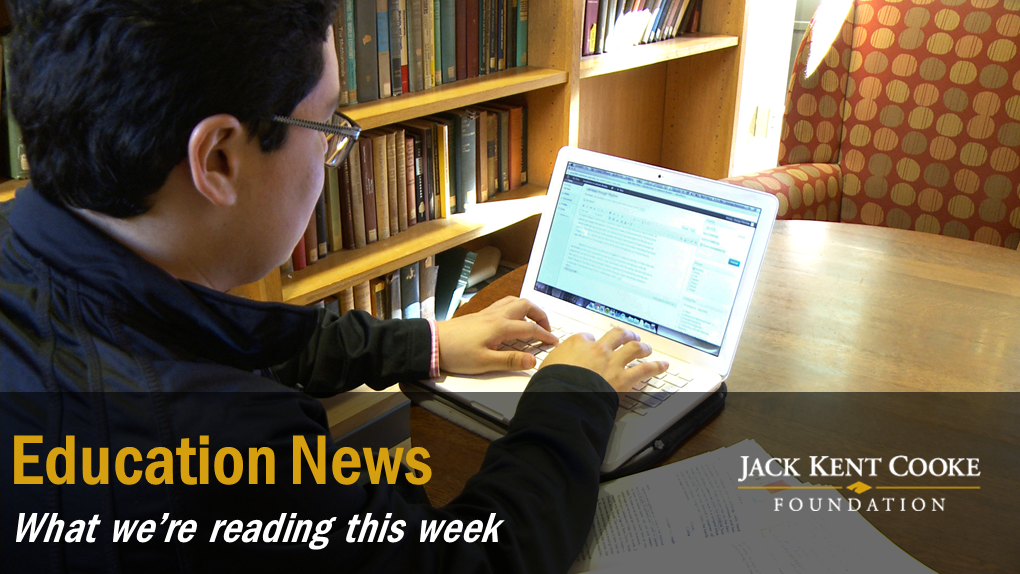September 30: Education News We're Reading This Week

September 30, 2016 – Here’s our weekly roundup of education news you may have missed. Articles examine the challenges low-income students face in K-12 and higher ed. We’re also highlighting important scholarship and financial aid opportunities available this week.
Elementary & Secondary Education:
-
“Local and national researchers say schools sometimes don’t recognize high-achieving students if they come from low-income families,” reports The Gazette in Janesville, Wisconsin. “And even if they are identified, the students don’t get the opportunities they deserve.”
Higher Education:
-
The FAFSA is launching early this year. Students can fill out their forms at FAFSA.gov starting Saturday. According to the National College Access Network’s Form Your Future initiative, “92 percent of students from low-income households will receive grants.”
-
In The Harvard Crimson, Cooke Scholar and Harvard University freshman Ethan Ambrose describes the challenge of finding his voice on campus.
-
The Hechinger Report examines how differently priced dorms on campus are contributing to rising socioeconomic and racial segregation within institutions.
-
Executive Director Harold O. Levy spoke with The Associated Press about the growing gap between college cost and affordability. Levy also provided insights regarding the significance of application fee waivers to Inside Higher Ed.
-
Cooke Scholar David Hartino reflects on ambition and academia in a profile by The Cornell Daily Sun.
Cooke Foundation Scholarship & Grant Opportunities:
-
As of this morning, we are accepting applications for our College Scholarship Program! High-achieving high school seniors should apply now for this generous award. The foundation provides recipients with up to $40,000 per year toward their degree, in addition to college advising and opportunities for internships, study abroad and graduate school funding.
-
Our Undergraduate Transfer Scholarship application is also currently open. Community college students who are determined to complete their bachelor’s degree can apply now for up to $40,000 per year, along with opportunities for study abroad, internship stipends, graduate school funding and more!
-
Submit your proposal for a Good Neighbor Grant. Selected grantees in the metropolitan Washington, D.C. area will receive a one-time grant of between $10,000 and $35,000 to support the establishment of new programs or the enhancement of existing initiatives that support high potential, low-income students.